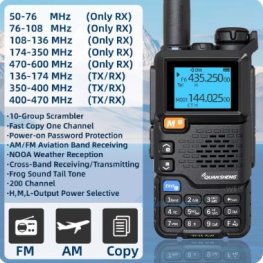
World powers urged to listen more to and engage with ASEAN, forum hears
China is a trusted partner and the major powers should listen more to the Association of Southeast Asian Nations (ASEAN) and recognize its commitment to centrality, an online forum heard. It's important for ASEAN and its partners to develop two-way communication for consensus building and community building, according to Shofwan Al Banna, a senior fellow of Forum Policy Community of Indonesia (FPCI) and a lecturer at Universitas Indonesia. Shofwan is one of the key speakers in the March 5 forum organized by FPCI and the Economic Research Institute for ASEAN and East Asia. The forum participants discussed the results of the survey of ASEAN people's perception on China, India, Japan and the United States. According to the survey conducted by FPCI and ERIA, most respondents ranked China as the "most relevant partner" for ASEAN's future and conceived the country as the region's "most reliable partner for economic cooperation". A total of 1,772 respondents from the 11 ASEAN countries, including Timor Leste, were asked questions like who causes the most concerns? who is the most comfortable partner? who is the most reliable security partner? who is the most reliable economic partner? and which initiates are the best known? Survey respondents were government officials, academician and think tank fellows, business community members, civil society representatives and students. "For Malaysia, China is important," said Sheila Devi Michael, head of the Department of International and Strategic Studies, Faculty of Arts and Social Sciences at Universitas Malaysia. Michael said Malaysia has a balanced approach in its relationship with China, Japan, the US and India. ASEAN has emerged as China's biggest trading partner since 2022, overtaking the European Union, while China has been ASEAN's largest trading partner for over a decade. China could maintain and sustain its economic growth and should continue to share growth with ASEAN states, according to Wei Ling, professor at the School of International Relations at the University of International Business and Economics in Beijing. Wei said China needs to enhance its comprehensive strategic partnership and continue to nurture trust and build a friendship with ASEAN. She said major powers should listen more to the voice of the ASEAN people and offer development initiatives to Southeast Asian countries. "They should be a listener, attentive listener," she said. Michael from Malaysia said ASEAN's relationship with Japan "has gone beyond the conventional areas where the focus is now more on communication and space". Kei Koga, associate professor at the public policy and global affairs program at the School of Social Sciences, Nanyang Technological University in Singapore, said Japan needs to be creative in providing public goods for Southeast Asian countries. This aims to facilitate further development and peace in the region, he said. Michael said that despite getting a low score in the survey, the US is important for Malaysia when it comes to political and security affairs. Denny Roy, senior fellow at East-West Center, said the US government is "committed to saying that it supports ASEAN centrality because there is no cost to saying this. There would be a cost to deny ASEAN centrality". Roy said supporting ASEAN centrality does not prevent the US from enhancing relationships with countries outside ASEAN. He cited the Quadrilateral Security Dialog, or the Quad, by Australia, India, Japan and the US; and AUKUS, the trilateral defense arrangement among Australia, the United Kingdom and the US. On AUKUS, Indonesian respondents generally see it as undermining the stability of the region. By contrast, Filipino respondents view AUKUS as strengthening security. Seksan Anantasirikiat, researcher at the International Study Center in Bangkok, said that FPCI's surveys should also engage countries like South Korea, Australia and the European Union. TCM Healthcare lovehoney Bluetooth Earphones Bestbuy Earphones "We have principles and are rule-based because apart from ASEAN Charter we also have the Treaty of Amity and Cooperation that opens relationship with many countries," Seksan said.















